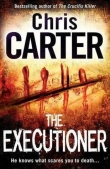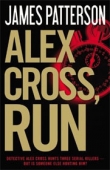
Текст книги "Paint It Black"
Автор книги: P. J. Parrish
Жанры:
Триллеры
,сообщить о нарушении
Текущая страница: 4 (всего у книги 20 страниц)
Chapter Nine
He expected pine trees, mossy paths, and maybe a deer or two. That’s what preserves looked like in Michigan. But he was in Florida now, where the earth smelled of rotting things and the spindly trees were packed dense, their branches twisting up to the sun like tortured fingers, their roots curving down into the water like inverted rib cages. Mangrove trees, Wainwright called them, as they drove past a sign that said MATLACHA NATURE PRESERVE. They didn’t look like trees to Louis. They looked like skeletons frozen in the black water.
The reserve was on the southern tip of Sereno Key, where the neat little neighborhoods ended and the land trickled off to melt into the brackish water. The water here was different than over on the bay. There, out in the open, it caught the sun and was moved by the tides and the wake of human activity. Here, it was dark, still, and primordial, frosted with a thin layer of algae.
Louis looked out over the mangroves. “There’s no way someone could get through those trees and wade out to the water,” he said. “Where do you think he threw him in?”
Wainwright lowered the visor as he took a curve in the narrow, hard-packed dirt road. “There’s an old boat ramp up here somewhere.”
They passed a small wooden sign that said NATURE WALK. Louis craned back to look for a path but saw nothing but dense brush. “What the hell is there to see out here?”
“Birds mostly,” Wainwright said. “Tree huggers like this place. It’s kept natural on purpose. I guess they feel it makes them one with God and all that shit. Me, all I see is a swamp.”
Wainwright took another curve and stopped suddenly. They had come to a clearing where the trees opened abruptly onto blue sky. In front of the squad car was a wooden boat ramp that dipped down into the tannin-brown water.
“This is it,” Wainwright said. “The only place he could have dumped him.”
Louis thought suddenly of the garbage on the causeway. “How do you know Quick wasn’t dumped somewhere else and the tide carried the body to where it was found?” he asked as he got out.
“I checked with a fishing guide I know,” Wainwright said. “Bakers Point is a small basin, with little water movement. Plus I just got a feeling.”
Wainwright was walking the ramp, his eyes scouring the planks. Louis joined him. The warped wood was old and sun-bleached to gray. But there was no sign of blood or paint. The air was hot and still, with no sounds—from animals or water.
“Jesus, this place stinks,” Louis said.
“Tide’s out. That’s nature for you,” Wainwright said. “Lots of things in nature stink.”
Louis chuckled. “See anything?”
“Nothing,” Wainwright said, crouching to peer at the planks. “Shit, there has to be some blood. He was stabbed eighteen times.”
Louis wandered over to the edge of the road, scanning the dirt around the ramp. It was flat and smooth, as if it hadn’t been walked on in years.
“When did it rain last?” he called back.
“The night Tatum was killed,” Wainwright said. “But even so, a man bleeds this much, it doesn’t matter. There would still be something to see on this old dried-up stuff.”
Louis turned. “Like spray paint?”
“Spray paint? Why do you think it was spray paint?”
“I doubt he’d take the time to use a brush.”
Wainwright started to stand up with a groan and Louis extended a hand. Wainwright accepted it, rising to his feet.
“I still don’t think the paint means anything,” he said.
“Maybe it does to the killer,” Louis said.
“Then why didn’t he paint Tatum?”
“I don’t know,” Louis said.
Wainwright glanced around. “Shit, I was so sure this was the place.”
Louis wiped his sweating brow. The boat ramp emptied into a narrow channel of mangroves. Louis spotted a beer can in the mangrove roots. From far off came the faint whine of a boat’s motor. Louis thought of the fishermen who had found Quick’s bloated body. They probably thought they were looking at a clot of trash, like the garbage caught in the rocks up on the causeway.
He turned to Wainwright suddenly. “Dan, could you call your office and have them pull the evidence sheet from the Tatum scene?”
Wainwright stared at him. “Why?”
“I got a hunch about something.”
Wainwright radioed in and Louis waited until Wainwright’s man had the evidence sheet. Louis started to speak, but Wainwright held up a hand. “Never mind, I think I just figured out what you’re looking for. Jones, check the sheet of all that garbage we picked up around Tatum on the causeway and tell me if you got a can of spray paint on it.”
They waited. Something splashed. Louis eyed the trees, expecting to see a gator come crashing out.
Finally Jones’s voice came back. “Yes, sir. One half-full can of Krylon spray paint. Black satin. No prints.”
Wainwright looked at Louis. “The motherfucker dropped it in the rain,” he said softly. He told Jones to run the can over to the lab, then signed off. He slid the radio back and looked at Louis.
“Any other ideas?” Wainwright asked.
“Yeah. The Nature Trail,” Louis said.
They backtracked to the trail sign and parked. The trail itself was a primitive, twisting boardwalk of old planks over the swampy ground, seemingly heading nowhere.
Louis opened his shirt, growing hot from the afternoon sun, and wiped his brow with his sleeve. Wainwright forged ahead on the boardwalk, unfettered by the heat, making his way through the tunnel of mangroves like a bear in the woods.
As they walked, Louis eyed the planks for signs of a struggle, drops of blood, ripped clothing, but there was nothing.
“Watch out for snakes, Kincaid,” Wainwright called back. “Don’t worry about the gators. They’re usually asleep in the heat of the day.”
Louis stopped, his eyes darting to the brush. He heard Wainwright chuckle but then go silent as he came to a stop.
“Well, I’ll be damned,” Wainwright said softly.
Louis hurried up behind Wainwright. Wainwright stood next to a sign that said SCENIC OVERLOOK. In front of him was a wooden platform.
“I didn’t even know this was here,” Wainwright said.
“Well, you’re not into this nature shit,” Louis said, walking ahead.
They went to the base of the platform and stopped cold. There were dark brown stains on the gray wooden steps.
“Bingo,” Wainwright said.
Some of the bloodstains were splatters, others streaks. “It looks like he dragged him up,” Wainwright said. “Careful going up.”
Slowly, avoiding the bloodstains, they ascended the ten steps. The platform was about six-foot square and it left them just above the tree line. To the east, across the narrow inlet, there was another body of land. But Louis didn’t focus on it. His eyes were drawn immediately to the large brown bloodstain in the middle of the platform. It radiated out nearly three feet. On one edge of the stain, black overlapped the brown.
“Paint,” Louis said, pointing.
Wainwright nodded.
For several long seconds, neither man said a word. Louis was rooted, unable to take his eyes off the huge brown stain. It was hard to believe Anthony Quick had any life in him when he was thrown into the water.
“Kincaid, over here.”
He looked up to see Wainwright standing by the railing. The rail was peppered with blood splatters and there was one large brown smudge.
“This has to be where he threw him in,” Wainwright said.
Louis stretched to look down into the water, dark as coffee grounds. “Where exactly did they find the body?” he asked.
Wainwright looked around, then pointed to a spot about ten yards away where the mangroves formed a point.
“So the tides didn’t move him,” Louis said. “Your hunch was right.”
“Yeah,” Wainwright said quietly. There was something in his eyes, but he blinked it away. “Well, I guess I’d better get a tech unit out here and call Bledsoe. He and the DA will need to know about this.”
They headed down to the squad car and Wainwright radioed in to his office. Louis leaned against the car, staring back at the wooden platform, trying both to see and not see what Quick must have gone through up there. Had he been able to comprehend what was happening to him as he was dragged up those steps? Had he known his killer? That was unlikely, given the fact that the same man probably also killed Tatum. Unless there was some link between the two dead men. But what could a liquor-store owner from Sereno Key and a computer salesman from Toledo have in common?
“Well, the county guys are on their way over,” Wainwright said. “By the way, Sheriff found Quick’s rental in the Holiday Inn lot, keys on the ground. And they found a clerk who said Quick asked about going fishing. He was supposed to get back by six for some awards dinner but never showed.”
“Can we talk to the clerk?”
Wainwright pursed his lips. “Sheriff says they’re handling it.” He looked out over the water. “Damn,” he said softly. “I hate to have them in on this.”
“This is your jurisdiction, isn’t it?” Louis asked.
“Technically. But I don’t have the men to do this kind of work and that asshole Mobley knows it. I have three uniforms on my little force, Kincaid. None of them has ever done anything harder than trying to take down Levon the other day.”
Louis guessed Mobley was the Lee County Sheriff and that there was some bad blood between the two men. Or maybe Wainwright was just embarrassed about having to admit his department’s inadequacies. The same thing had happened back in Michigan. What was it with cops and turf wars?
“Kincaid,” Wainwright said.
Louis glanced back at him.
“You’ve got good instincts.”
“Thanks.”
“Why’d you give up the badge?”
Louis felt himself tighten. The words I didn’t have a choice came to his mind, but he didn’t say them.
“I needed a break,” Louis replied.
Wainwright was looking at him. Louis waited, hoping he’d let it drop. Finally, Wainwright just nodded.
“Yeah, this shit can get to anybody,” he said.
It had been Margaret Dodie’s idea to bring Roberta Tatum some fresh clothes. Margaret said she didn’t think Roberta had any kin who cared about her—outside of her dead husband and her brother. And it didn’t seem right, she said, that an innocent woman should have to go home wearing dirty clothes. So she had Wainwright take her to the Tatum home and she selected an outfit. She asked Louis to deliver it.
Roberta had eyed him suspiciously when he handed her a blue linen pantsuit, shoes, and underwear. She offered no thanks.
Louis waited for her in Wainwright’s office. He paced, left alone with images of Quick’s splattered blood and Walter Tatum’s battered face. It was unfamiliar and unsettling, and he allowed himself to wonder if, given another twenty years, he would have the same sense of coolness that Wainwright had.
His eyes fell to the photo on the desk. Two kids but no wife. Where was she and how old were the kids now? Teenagers or young adults, far removed from their old man’s life?
“You still here?”
Louis turned to face Roberta Tatum. The linen pantsuit and matching shoes were probably meant for a dressy occasion and Roberta had not been able to do anything with her hair. Still, she looked different.
“You look . . . nice,” Louis offered.
She grimaced and tried to smooth back her hair. He sensed he amused her. “I suppose you think I should thank you,” she said.
“I didn’t do anything. Chief Wainwright is the one who got the state’s attorney to move on dismissal.”
“They think I’m capable of killing one man but not two?” she said.
“Something like that,” he said. He didn’t see the need to explain the legal thinking behind it, that this case was no longer a domestic gone bad. It was obviously beyond that now, turning into something very different.
“You find my brother yet?” she asked.
Louis shook his head. “You want to tell us where he might be hiding?”
“You still think he did this?”
Louis stared at her evenly. “We’ve got two violent homicides that are, at this point, without motive. They seem to be the work of someone who is . . . unbalanced.”
Roberta Tatum held his eyes for a second, then looked away.
“Mrs. Tatum, is there anything you’re not telling us about your brother?”
“Levon ain’t been right in the head for a while now,” she said slowly.
“What do you mean?”
“It started when he was about sixteen, when we were living over in Fort Myers,” she said. “He got in with a bad bunch. Then the drugs started and Mama and me couldn’t do anything with him after that.”
Louis waited, not sure she was going to offer anything more.
Finally, she sighed. “Levon wasn’t a bad boy. He still isn’t when he’s clean.”
“That’s not often, is it?” Louis said.
She shook her head slowly. “I’ve tried to look out after him. Me and Walter moved over here to make a fresh start. We put every dime we had into the store on Captiva, and finally started making a little money.” She paused. “Levon kind of came and went. We gave him a room in the back of the store and Walter paid him to do some work. He was okay for a while, but then he got messed up again and stole some stuff and Walter threw him out.”
Louis wondered how much of this Wainwright knew.
“Mrs. Tatum,” he said, “I have to ask you again. Do you believe your brother could kill someone?”
She didn’t answer. She didn’t even look at him. “You got a cigarette?” she asked softly.
“I don’t smoke. Sorry.”
Roberta pulled in a deep breath and turned to face him. Her black eyes glistened but she had retreated back into her hard shell. “You got any other suspects besides my brother?” she demanded.
He could tell she was waiting for something from him, anything that might help her believe her brother was innocent.
“No,” he said finally. “Not yet.”
Her eyes bore into him. “I read there’s another dead black man now. They think Levon killed that other man, too, don’t they?”
“Mrs. Tatum, Chief Wainwright—”
“Wainwright,” she snapped. “He thinks Levon did it because it’s easier. It’s easier to think that ’cause Levon is sick he did it. It’s easier ’cause black men kill black men every day and it’s easier than finding who really did it.”
Louis turned away. His head was pounding and his ribs ached like a son of a bitch. “Your lawyer is waiting outside to take you home, Mrs. Tatum,” he said.
“I know, I know,” she said.
When he turned to look at her, she was facing the wall again, seemingly examining the plaques on Wainwright’s walls. He sensed she wanted to say something more. He waited until she finally turned to face him.
“I suppose you’re still expecting your money,” she said.
“Your lawyer already took care of that,” Louis said. Bledsoe had paid him the fifteen-hundred flat fee. Not bad for a week’s work and he still had the return portion of his plane ticket.
“Who do you think killed Walter?”
The question caught him off guard. “I have no idea,” he said.
“Well, could you?”
“Could I what?”
“Have an idea? I mean, if you stayed around to look.”
She was staring at him, waiting for an answer.
“I think the police will work hard to find your husband’s killer, Mrs. Tatum,” he said.
Roberta stared at him a moment, then shook her head. “You really believe white men care about black men laying dead in the swamps?”
When he didn’t answer, she started for the door. She stopped and turned.
“I’m putting up a reward,” she said. “Twenty grand for anyone who finds out who killed my Walter. I want to know. Even if it is Levon.” She narrowed her eyes at him. “Maybe that’ll get you motivated.”
She turned on her heel and was gone. Louis watched her stalk out the front glass doors and get into Bledsoe’s Honda waiting at the curb. He let out a sigh.
He went outside, lingering for a moment on the sidewalk, feeling the balmy night breeze on his face. Well, that was over. So where would he go from here? He sure as hell didn’t want to go home to Michigan. But he had no job here and couldn’t get one. Not without telling a potential employer everything. He had seen a few ads for security officers in the paper, but the thought turned his stomach. And no matter how desperate he got, he didn’t want to work on his own, hanging up some shingle and busting cheating husbands for fifty bucks a day.
Hell, maybe he could go back to school. Get his law degree, make his foster mother proud. Prosecute these motherfuckers after people like Wainwright caught them.
He stared at the darkening sky.
God, he missed it. He missed the job.
The day out in the sun with Wainwright had brought it all back, and he had almost come right out and asked Wainwright if he wanted help on the case. But Wainwright was ex-FBI and he knew how that could be. Retired or not, he was obviously a one-man show. So Louis hadn’t brought it up. But now here was Roberta Tatum, dangling her own twenty-thousand-dollar carrot.
He sat down on the station house steps.
He missed everything. The surge of energy that came from using his brain, the rush of adrenaline in the veins. The sifting through evidence to find that one shred someone else missed. The feel of a gun on his hip and the weight of the badge on his shirt. He missed, too, the feeling that at the end of the day, he had done something right. He missed all of it, despite everything that had happened in Michigan.
“Thought you were long gone.”
Louis hadn’t heard Wainwright come out the door. “Evening, Dan.”
“You look like you were a hundred miles away.”
“Yeah.” Louis rose and took a deep breath. “I think you did the right thing droppping the charges against Roberta Tatum.”
“You’re probably right,” Wainwright. “But I still got some concerns about the brother. I think it’s possible Levon got pissed enough at Walter to kill him, and maybe that pushed him off the deep end and he took it out on Anthony Quick, too.”
“Maybe,” Louis said. “Roberta told me something interesting. Walter Tatum threw Levon out once for stealing from the store.”
“Levon did some jail time here and there for assault and he got into some court-ordered drug rehab program. I didn’t know about the stealing though. It adds to motive.”
“It still doesn’t explain why Levon would kill Quick. He was a stranger,” Louis said.
“Drugs can mess up your head,” Wainwright said.
Wainwright was staring off down the street, his brows furrowed. “Roberta put up a reward,” he said finally.
“She told me,” Louis said.
“Do you know what that’ll do? The screwballs are going to come out of the woodwork now. People would turn in their mother if they thought they’d get some bucks out of it. Not to mention the reporters and PI’s. Goddamn amateurs.”
Wainwright looked quickly at Louis. “Didn’t mean you, Kincaid. You’re not a real PI anyway.”
Louis forced a smile. He guessed that was a compliment.
Wainwright cleared his throat. “So, when you heading back to Michigan?”
“Soon,” Louis said.
“I guess that means you didn’t send away for that PI license application then.”
Louis shook his head. He knew it was time to say his good-byes and walk away, but he didn’t.
Wainwright leaned against the railing, looking out at the parking lot. Across the street, some people were coming out of the Lazy Flamingo, laughing as they piled into a car.
“Whoever it is, I don’t think he’s finished,” Wainwright said.
Louis nodded. “I had the same feeling.”
Wainwright looked at him. “You ever work a case like this before?”
Louis shook his head. The car peeled out of the Flamingo’s lot, trailing laughter in the warm night air.
“You don’t realize at first what it can do,” Wainwright said. “You’re working, trying to catch the fucker, doing your job, and you don’t even notice what it’s doing to you. It gets inside you until one day you realize looking at stiffs isn’t any harder than cleaning up cat shit.”
Louis stared at him. Ask me to stay.
The moment lengthened. “I better get going,” Louis said finally.
“You wanna go across the street and get a beer?” Wainwright asked.
“Margaret locks up at ten. I’d better go.”
Wainwright nodded and started up the steps. Louis turned to the parking lot.
“Hey, Kincaid. Have a nice flight,” Wainwright said.
Chapter Ten
Wainwright sifted slowly through the autopsy photos. Tatum’s battered face. Quick’s bloated body. Two men. Two strong, healthy men without enemies. Men from different states and different professions. And nothing to link them but the color of their skin.
Across from him, Officer Greg Candy craned his neck to look at them. Wainwright noticed Candy made no move to turn them around for a better viewing.
“The doc call yet with his final report?”
“No, sir,” Candy said. “You want me to try him again?”
Before Wainwright could answer, there was a knock. Wainwright hollered, “Come in” and a man entered. He wore a suit, and Wainwright knew instantly he was a cop.
Officer Candy started to rise, but Wain wright waved his man back into his seat.
“Can I help you?” Wainwright asked.
“Sergeant Driggs,” the man said. He flipped open his badge and slapped it shut in one flick of his wrist. But not before Wainwright saw the Lee County Sheriff’s emblem.
Wainwright looked at Candy over the desk and smiled. “I’ve always wanted to learn how to do that.” He looked back at Driggs. “Can you do that again?”
Driggs sneered at him. He was short and balding and looked stretched too tight, as if he felt the need to constantly overcompensate for both his lack of height and hair.
“I’m here on behalf of Sheriff Mobley,” Driggs said.
“And what business does Mobley have with me?” Wainwright said.
“Homicide,” Driggs said.
Wainwright looked at Driggs and calmly gathered the photos and slipped them back into the manila file. “Really. Who died?”
“You know what I’m talking about. Two dead men in less than three weeks.”
“True enough, true enough. But I don’t see why you’re interested, Driggs. Both bodies were dumped here on Sereno Key. There’s a whole lot of water and a big-ass causeway between Sereno Key and your turf, isn’t there?”
“Anthony Quick’s car was found at the Holiday Inn on Fort Myers Beach,” Driggs said. “That’s unincorporated, so he was abducted from our turf.”
“Who’s to say Mr. Quick didn’t go voluntarily?” Wainwright said.
“You and I both know the odds are against that.”
“Right now, we have no reason to believe he didn’t. Therefore, I don’t think you have any jurisdiction here, Sergeant Driggs.”
The top of Driggs’s head was red. “Look, Chief Wainwright. You don’t have the resources to work this alone.”
Wainwright looked down at the manila folder. Part of him wanted to hand off the file and forget about it. Let the jokers have it. He knew Mobley. He was an ambitious son of a bitch who was probably looking to use the murders as a springboard for reelection or even DA. The county did have the technology, the money, and the manpower. What did it matter who caught the bastard?
“Don’t make me embarrass you here, Chief,” Driggs said softly.
Wainwright’s eyes shot up. “Excuse me?”
Driggs glanced at Candy, who was sitting off to one side, failing miserably at looking disinterested. “Chief,” Driggs said calmly, “you have three men on your force here, one who’s near retirement and two who never wore a badge before you took them on.” He paused just a beat. “And you are retired from the FBI, the OPR, to be exact. Why don’t you just give us what you’ve got and let us do our job?”
Wainwright took a breath. “You mean let you do my job. They’re my bodies on my island. Now why don’t you see if you can get yourself safely back across the bridge without driving into the goddamn bay?”
Driggs pulled a folded newspaper from under his arm and slapped it down on the desk. “Okay, Chief. Have it your way. But when this case blows up in your face, you’ll reconsider.”
Wainwright looked down at it. It was that morning’s News-Press with a headline big enough to be read from a car speeding by a newsstand box: NAACP: MURDERS ARE HATE CRIMES
Wainwright had already read the story. An anonymous source in the sheriff’s office was quoted as saying they were looking at a racially motivated crime. The Southwest Florida NAACP was demanding swift investigation.
Driggs held out a card. “When you change your mind, give me a call.”
When Wainwright didn’t take it, Driggs slipped the card back in his pocket. He left, leaving the door open. The office was quiet. Wainwright could hear his own breathing. Officer Candy picked up the newspaper, scanned the story, then put it down.
“Chief,” Candy said, “what are you going to do?”
“I don’t know.” Wainwright turned to look out the window.
Candy stood up. “Anything else you want me to do before I sign out?”
Wainwright turned and picked up the case folder. “Yeah, get Louis Kincaid on the phone.”
“Move, damn it.”
Louis pushed Issy off the bed, but the cat jumped back up, strolling across his open suitcase.
“Are you taking her back with you?”
Louis looked back over his shoulder at Margaret Dodie standing at the door.
“Unfortunately.”
“You could leave her, you know.”
Louis stood up, stretching his back. The cat was sprawled across his shirts, looking up at him with calm green eyes.
“No, I can’t do that.”
Margaret came into the bedroom and walked over to Issy, petting her gently. “How’d you end up with her? It’s obvious you don’t like her very much.”
Louis frowned. He had tried to be nice to it. “She was abandoned. A friend of mine left suddenly. I took her until . . .” Louis paused.
Until what? Until he saw Zoe again? Until she came back? Until he went back?
Margaret smiled and sat on the corner of the bed. Louis kept his eyes down, folding his things, hoping Margaret would leave, wishing she didn’t seem to know everything.
“We’ll miss you, Louis,” she said. “Sam especially.”
Louis busied himself rolling socks. “He’s a good man. I’m glad he’s happy down here.” Louis shoved his socks down the side of the suitcase.
“He likes you, Louis. He likes you a lot.”
“Well, I like him, too, Margaret.”
A screen door banged shut and Margaret rose as Dodie came to the bedroom door.
“All packed, eh?”
Louis scanned the room. There was nothing else to pack, but it was easier than beginning the good-byes. “I guess so.” He closed the suitcase and finally looked over at Dodie, who was scratching the cat’s head. Margaret was looking at her husband.
“So. What time is your plane?” Dodie asked finally.
Louis glanced at his watch. “Two hours. Guess we’d better get going.”
“I’ll make you a sandwich,” Margaret said, setting the cat aside. “They only give you crackers now, you know. Me, I’ve never been on a plane, but that’s what I heard.”
“Peanuts,” Dodie said.
Margaret looked confused.
“Peanuts. On the plane,” Dodie said. “They give you peanuts, Margie, not crackers.”
“Peanuts, crackers. Still not enough for a man to eat. You still need a sandwich.”
“It’s okay—” Louis said, but Margaret was gone. Issy jumped down after her. Dodie came into the room and handed Louis the newspaper.
“Still no suspects,” he said. “Or any sign of Levon. And the black folk are asking for answers.”
Louis looked at the headline and then tossed the paper aside. “They’ll catch him.”
“Not interested?”
“It would only drive me nuts.”
Dodie sat down on the bed. “You could get work down here, Louis. You don’t have to go back up North.”
“Sam, we both know I can’t work down here, not at what I want to do.”
“Can’t work up there at what you want to do, neither, Louis.”
“Sam . . . please.”
Dodie nodded and started for the door. “I reckon I overstepped. Sorry.”
“You didn’t overstep—”
But Dodie was gone. Damn it.
Louis grabbed the suitcase and the cat carrier and walked to the living room. Dodie was nowhere to be seen, but Louis could pick up the smell of his cigar coming from the patio. He called for Issy and heard her meow from the kitchen. He went to the kitchen. The cat looked at him from between Margaret’s thick ankles.
“Come here, cat.”
Issy trotted away into the laundry room.
“Damn it,” Louis said.
Louis started after the cat. The phone rang. Margaret was busy making the sandwich and motioned for Louis to pick it up. It was Wainwright.
“Kincaid,” he said, “I just had a visit from one of the sheriff’s boys and I kind of put my foot in it. They want to help and I threw him out of my office. He pissed me off, Kincaid. I probably shouldn’t have done it, but it gave me a chance to do something I’ve been wanting to do since I met you.”
“Who is it?” Margaret asked.
“Go on, Chief,” Louis said.
Margaret scurried out of the room. Louis could hear her calling to Dodie.
“Do you want to stay and help me with this case?” Wainwright asked.
“Are you offering me a job?” Louis asked.
“Well, yeah, there’s one thing, though.”
Jesus. Background check. Reference check. Why did you leave your last job? He had to tell him.
“I can’t pay you much,” Wainwright said. “I got a little money in petty cash that I can funnel your way, and I’ll have to label you as a consultant or something until I can get the town to approve you being hired as anything else.”
Louis fell back against the wall. He glanced over to see Dodie and Margaret standing at the door.
“Kincaid? Can you live with that?”
“Yeah, yeah,” Louis said, smiling. “I can live with that.”








